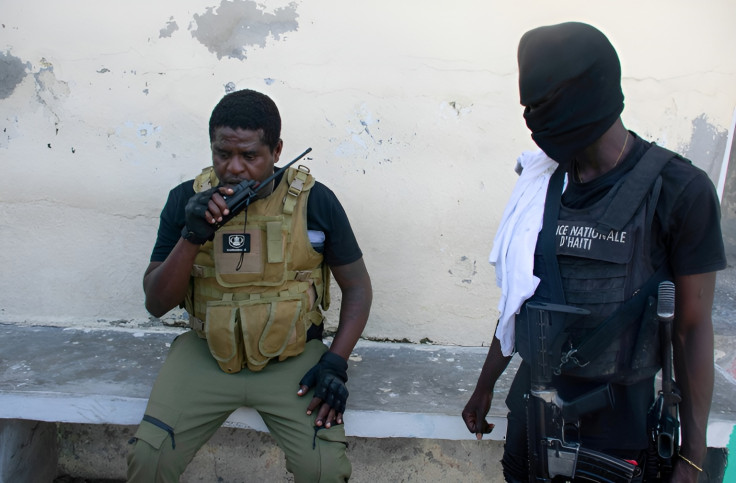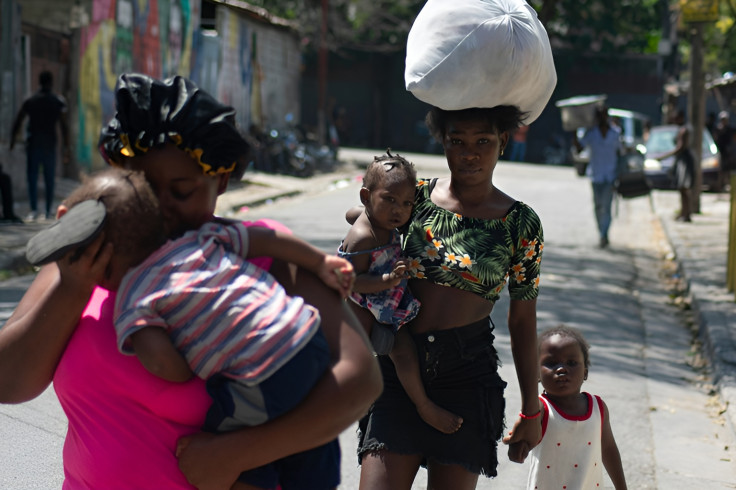
Haitian gangs have significantly expanded their influence and capabilities, posing an escalating threat to the multinational police force led by Kenya that is set to deploy to the country, The New York Times reported on Tuesday.
These organizations have entrenched themselves in key national infrastructure, including police stations and seaports, and have driven hundreds of thousands of people from the capital. There are also suspicions of their involvement in the 2021 assassination of President Jovenel Moïse, a catalyst of the current state of chaos.
Western diplomats and officials warn that the evolving power and sophistication of these gangs are a major challenge for the incoming force of 2,500 police officers and the transitional council working towards elections.
Security experts who spoke to the outlet also note that this mission will face a more formidable and unified gang network than any previous intervention in the Caribbean nation.
Historically dependent on political and business elites for funding, some Haitian gangs have found new, independent financial sources since the assassination of President Moïse and the subsequent state collapse.
According to William O'Neill, the United Nations-appointed human rights expert for Haiti, gangs previously relied on income from kidnappings, extortion, and political payouts. However, they are now more autonomous and wielding unprecedented power.
Recent intelligence suggests that these gangs have acquired automatic weapons, potentially sourced from regional military stockpiles or converted from semiautomatic rifles. Their public posture has also shifted, with gangs now presenting themselves as militias with national ambitions, rather than being mired in local turf wars.
In September, several of Haiti's gangs formed an alliance called Vivre Ensemble (Living Together) shortly after the Dominican Republic closed its border, a move that hindered their drug-smuggling operations. However, this alliance quickly disintegrated following the theft of two tons of cocaine from the gang leader Johnson André, known as Izo. Izo's 5 Segonn gang, one of Haiti's largest cocaine traffickers, revived the alliance in February with a renewed agenda, including opposition to the Kenyan-led security force and a pledge to overthrow the prime minister.
Following this resurgence, the alliance executed a prison break, releasing approximately 4,600 inmates, many of whom joined the gangs. This incident prompted the resignation of Haiti's prime minister, who was abroad at the time. Among those freed was Dimitri Hérard, former head of the security unit that protected President Moïse. Hérard, implicated in the president's assassination and previously detained, is now reportedly aiding Izo's gang and possibly connecting them with larger criminal organizations, including drug cartels.
Haitian gangs appear to be using weapons similar to those of the Gulf Clan, a Colombian cartel operating along the Caribbean coastline. Colombian President Gustavo Petro has indicated that stolen military weapons from Colombia may have made their way to Haiti.
Another prominent gang leader, Vitel'homme Innocent, has been linked to President Moïse's assassination, having allegedly rented one of the vehicles used in the attack. Witnesses in this case were reportedly intimidated by officials, including Jimmy Chérizier, a police officer who is now a powerful gang leader and part of the Vivre Ensemble coalition.
In a recent interview with NPR, Chérizier said the criminal consortium is gearing up for a lengthy fight that will involve "a lot of bloodshed." Challenged by noting that poor people are being extorted and women are getting raped, Chérizier said that while that is true, "all of the extortion and all of the mistreatment is because the government allowed those things to happen."

He also blamed the U.S., saying the government carries some "responsibility" for the country's situation because they don't let Haitians decide about their own future for themselves. "The transitional council is not the will of the Haitian people. This is what Washington wants," he added.
Experts caution that any proposal for amnesty must be approached carefully, given the severe human rights violations committed by these gangs and the current political disunity. Failure to engage Haitians in this process could exacerbate the crisis, undermining efforts to stabilize the country.
The situation is poised to unfold, as U.S. military planes have already begun landing in Haiti with civilian contractors aiming at securing the airport before building a base of operations and supplies for the force. Led by Kenya, the force is also set to have members from six other countries: the Bahamas, Bangladesh, Barbados, Benin, Chad and Jamaica.
© 2025 Latin Times. All rights reserved. Do not reproduce without permission.





